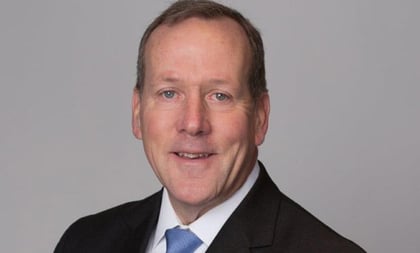Deep-six that image of millennials as a self-serving, all-about-me generation.
Indeed, according to a “Why of Wealth” study, over the next five years affluent young business owners are placing high priority on being philanthropic. So says David Murphy, head of wealth advisory for Boston Private, in an interview with ThinkAdvisor.
According to the survey, 60% of millennials feel the greatest sense of responsibility to give back — the biggest share of any age group. The study was commissioned by Boston Private, a subsidiary of Boston Private Bank & Trust, and released in June.
It focuses on affluent individuals’ motivations for pursuing wealth — and associated costs therein (guilt, for example).
In the interview, Murphy discusses specific ways that advisors can help clients relevant to the survey findings.
Out of the 300 respondents, ages 25 to 65 with $1 million to $20 million in investable assets, 41% were business owners. More wealth is created through entrepreneurial activities than nearly any other sort, argues Murphy, an Army colonel who last year joined Boston Private from TD Bank, where, as investment director, he oversaw eight states. Before that, he was a Chase Manhattan Bank portfolio manager.
The survey found that business-owner respondents — mostly millennials — focus more on investing as the main driver of wealth accumulation and attach more importance to investment performance than do corporate employees.
ThinkAdvisor recently interviewed Murphy, on the phone from his Boston office. The conversation turned to the Colonel’s explaining why, when he was working at TD Bank as the financial crisis was winding down, the Army ordered him to Afghanistan.
Here are highlights:
THINKADVISOR: Over the next five years, more business owners vs. employees plan to change the way they use wealth, the survey says. What’s one example?
DAVID MURPHY: One of the surprising things was how millennials are much more philanthropic than is presumed. They put a strong emphasis on passing on wealth to children and philanthropic giving. Many of the millennials — both business owners and [employees] — felt a great sense of responsibility to try to give back their wealth.
Therefore, tax-planning and inheritance management carry more weight vs. 10 years ago, the survey notes. What does that mean to FAs?
This is the kind of advice people are willing to pay for, and advisors need to develop emotional intelligence and listening skills to provide it. If they pick up on that, they’ll become successful top advisors in the long run.
The business owners — who were mostly millennials — focus more on investing as the main driver of wealth accumulation and philanthropic giving, the survey showed. How can advisors help?
A productive client review is one in which the advisor understands what part of the life cycle the client is in and identifying their internal benchmark. Are the investments supporting that? The most important benchmark is the client’s personal benchmark, and the asset composition should reflect that. Therefore, the S&P 500 isn’t the best benchmark.
When looking for a financial partner — including a financial advisor — to help achieve goals, business owners, more than non-business owners, look at investment performance, transparency and reputation, the survey showed. Are they looking for great returns?
Good investment performance is a baseline requirement – we have to provide that. I’m not saying “great” performance because to achieve that year over year, you may have to assume risk that isn’t consistent with the client’s understanding or appreciation of their long-term goal.
About eight in 10 business owners said their wealth priorities have changed over time. Such as?
For example, moving their business to a second or third generation of family members. This driver isn’t felt by individuals who work for a government agency or a large company. But it’s deeply felt by business owners. Many advisors who don’t provide a level of expertise and guidance [to address this] will find themselves coming up short when clients start to reach that point in their lives.
 (Graphic: Boston Private)
(Graphic: Boston Private)
How specifically can FAs help when clients want to transfer their business?
With buy-sell agreements, legacy planning, key man insurance [on the owner]. These are all concerns of business owners as they mature in their life cycle.
You mentioned emotional intelligence — the ability to manage one’s own emotions and to understand and influence others’ emotions. Why is it essential for advisors to develop that?
Because transitioning a business or engaging in philanthropy, for example, aren’t just about mechanics but understanding when the client is in the right part in their life cycle and [in a place] emotionally to do so.
FAs haven’t been encouraged to focus on emotional intelligence and other soft skills until fairly recently. Why is this so important now?
We’re at a time when clients are willing to pay less and less for investment management. But they’re willing to pay for advisors who can combine good investment performance with good advice and emotional intelligence in terms of the timing of that advice.
Business owners’ biggest motivation for accumulating wealth is a passion for their business. Most of the entrepreneurs surveyed were in the younger age range. Is youth the reason for this finding?









 August 22, 2018 at 02:27 PM
August 22, 2018 at 02:27 PM












 (Graphic: Boston Private)
(Graphic: Boston Private)